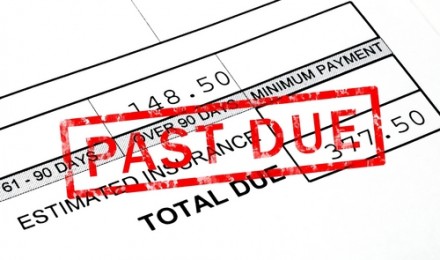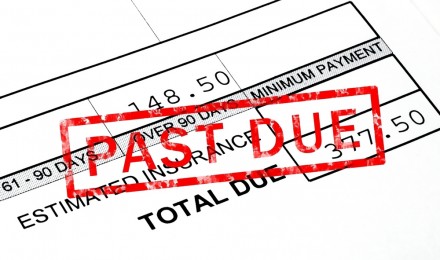The Fair Debt Collections Practices Act, or FDCPA, enacted by Congress in 1978, responded to the extreme tactics engaged by collection agencies in attempts to collect from debtors. Collection agencies and debt purchasers make thousands of phone calls and send thousands of letters a day in an attempt to collect valid debts. Many only collect on a small percentage of the debts which they purchase or have had assigned to them.
The FDCPA prevents third party collectors – usually contingency collection agencies or debt buyers – from using harassing or certain deceptive acts, or disturb a debtor’s privacy in an attempt to collect a debt. A debtor is protected under the FDCPA in several ways:
- A debt collector must identify himself as such and must remind the debtor of their rights to verification within 5 days of initial contact.
- A debt collector must verify specific information when requested by a debtor within a certain time frame if requested by the debtor.
- A debt collector cannot make repeated phone calls on the same day to the same phone number with intent to harass or intimidate the debtor.
- A debt collector cannot reveal information regarding a debt to anyone other than the debtor, their spouse, or attorney without express permission from the debtor.
- A debt collector must cease communication when requested.
- A debt collector cannot place false information about the debt on a debtor’s credit report
- A debt collector cannot use abusive or profane language, or threaten a debtor with arrest or criminal prosecution.
- A debt collector cannot use legal action as a threat against a debtor unless legal action is actually intended within a certain time frame.
The verifications that a creditor must confirm in writing to the debtor include that the amount being demanded is actually the amount owed, and the name and address of the original creditor. The FDCPA does not require a creditor to provide every document from origination for validation and verification of a debt.
Most of the protections for a debtor generally fall under the above guidelines. The general purpose of the FDCPA is to protect a debtor’s privacy and legal rights. Many states also have passed laws that add to the protections for a consumer under the FDCPA.
What the FDCPA does NOT cover:
- Direct contact from the originating creditor, such as a bank or finance company.
- Debt made for a commercial/business purpose.
- A creditor reporting a debt correctly on a credit report.
Furthermore, the FDCPA does not invalidate a debt, prevent a creditor from filing suit if a debt is in-statute, or otherwise render a debt void unless determined by a court.
If a debt collector is not following the guidelines set forth in the FDCPA, make sure you do your homework on the FDCPA and seek attorney assistance. Many of the “boilerplate” letters can fail when consumers attempt to take on creditors on their own. Also, ALWAYS deal in writing with a creditor as the ONLY method of communication, particularly when agreeing on any debt settlement.
The FDCPA is not a “get out of debt” free card. Rather, the FDCPA is a consumer protection tool against unscrupulous behavior. Borrowing money should be undertaken with careful consideration and only done so with the intent to repay.
The Fair Debt Collections Practices Act, or FDCPA, enacted by Congress in 1978, responded to the extreme tactics engaged by collection agencies in attempts to collect from debtors. Collection agencies and debt purchasers make thousands of phone calls and send thousands of letters a day in an attempt to collect valid debts. Many only collect on a small percentage of the debts which they purchase or have had assigned to them.
The FDCPA prevents third party collectors – usually contingency collection agencies or debt buyers – from using harassing or certain deceptive acts, or disturb a debtor’s privacy in an attempt to collect a debt. A debtor is protected under the FDCPA in several ways:
- A debt collector must identify himself as such and must remind the debtor of their rights to verification within 5 days of initial contact.
- A debt collector must verify specific information when requested by a debtor within a certain time frame if requested by the debtor.
- A debt collector cannot make repeated phone calls on the same day to the same phone number with intent to harass or intimidate the debtor.
- A debt collector cannot reveal information regarding a debt to anyone other than the debtor, their spouse, or attorney without express permission from the debtor.
- A debt collector must cease communication when requested.
- A debt collector cannot place false information about the debt on a debtor’s credit report
- A debt collector cannot use abusive or profane language, or threaten a debtor with arrest or criminal prosecution.
- A debt collector cannot use legal action as a threat against a debtor unless legal action is actually intended within a certain time frame.
The verifications that a creditor must confirm in writing to the debtor include that the amount being demanded is actually the amount owed, and the name and address of the original creditor. The FDCPA does not require a creditor to provide every document from origination for validation and verification of a debt.
Most of the protections for a debtor generally fall under the above guidelines. The general purpose of the FDCPA is to protect a debtor’s privacy and legal rights. Many states also have passed laws that add to the protections for a consumer under the FDCPA.
What the FDCPA does NOT cover:
- Direct contact from the originating creditor, such as a bank or finance company.
- Debt made for a commercial/business purpose.
- A creditor reporting a debt correctly on a credit report.
Furthermore, the FDCPA does not invalidate a debt, prevent a creditor from filing suit if a debt is in-statute, or otherwise render a debt void unless determined by a court.
If a debt collector is not following the guidelines set forth in the FDCPA, make sure you do your homework on the FDCPA and seek attorney assistance. Many of the “boilerplate” letters can fail when consumers attempt to take on creditors on their own. Also, ALWAYS deal in writing with a creditor as the ONLY method of communication, particularly when agreeing on any debt settlement.
The FDCPA is not a “get out of debt” free card. Rather, the FDCPA is a consumer protection tool against unscrupulous behavior. Borrowing money should be undertaken with careful consideration and only done so with the intent to repay.






